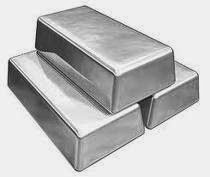www.jsmineset.com
Here are the 30 reasons, 23 new and 7 set in cement, of why the Bear phase in the bull market for gold ends this summer without any new lows.
1. The New definition of warfare is economic. Sanctions against Russia and the implications for the Petrodollar
2. FACTA and the universal long arm of the US government via any transaction internationally that passes even momentarily through the dollar as a contract settlement mechanism. The negative implications for the dollar’s future as a contract settlement mechanism internationally.
3. EU split over sanctions due to Russian energy demand and Russian business interests.
4. Middle East Western Hegemony and Arab Spring is defunct.
5. Iran to assist in Iraq if asked, which is the failure of "Misssion Accomplished."
6. Iraq oil production challenged by ISEL.
7. Kurds emboldened by ISEL.
8. US relationship with Saudi Arabia and Qatar is strained.
9. BRICs uniting economically and politically as a standalone force.
10. China expands Yuan/Renminbi as an international currency.
11. China’s China Sea energy tensions with Japan and Vietnam.
12. USA’s position on the China Sea crisis where Japan is concerned.
13. The militarization of Japan.
14. The distinct scent of inflation.
15. General dissatisfaction with answers to questions to Chair Yellen regarding FOMC meeting last week
16. IMF reduced expectations of US economic recovery.
17. US Zombie Banks as defined by banks leveraged generally 30 to 35 times the size of their capital of total OTC derivative exposure.
18. Condition of the flooded municipal bond market.
19. Decline in volume with rise in value of equities, making equity price shadows our reality.
20. Totally irrational exuberance driven by hyper liquidity.
21. Hyper liquidity can become
hyper inflation via the velocity of money in a crisis of confidence of the dollar. Therefore hyperinflation will be a currency motivated event.
22. Reaction in the momentum equity leaders of the last 2 years burning a public.
23. Strength of the utilities group which has historical attachment to tops in equity markets.
Old problems:
24. The one quadrillion, one hundred and forty four trillion dollars real size of the OTC derivatives market.
25. Economic underpinning of the dollar in jeopardy as recovery sputters globally
26. Absurd size of the Fed balance sheet and lack of marketability of significant size legacy derivative positions.
27. Taper of QE and little Belgium to the QE rescue.
28. China and Russia on the sell side of the US treasuries.
29. MY RA exposes consideration of invasion of retirement accounts, and GOTS (Get out of the system) as a defense strategy.
30. The huge drop out of the labor pool in the US, making employment figures sketchy at best.
Source/link >>>










